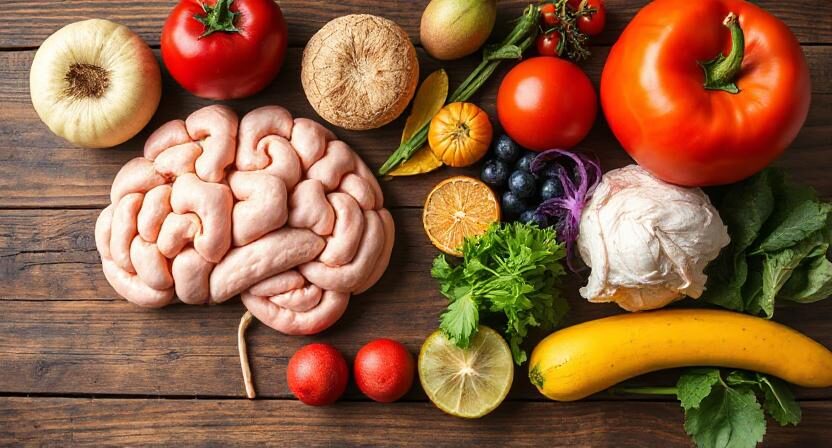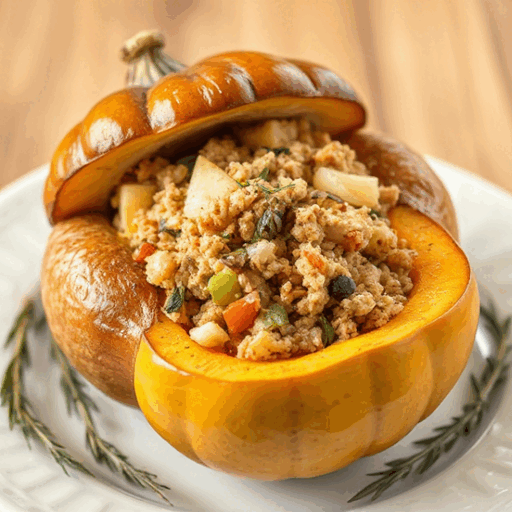14 Ways to Begin Healing…
Blog by Sherry Larson 14 Ways to Begin Healing Your…
Table of Contents
Toggle
Neurogenesis, the process of growing new brain cells, was once thought to stop after childhood. However, emerging research shows that the brain has the ability to generate new neurons throughout life, particularly in the hippocampus, the region responsible for memory and learning. One of the most powerful ways to support neurogenesis is through diet. Certain foods contain essential nutrients and bioactive compounds that help protect neurons, promote brain plasticity, and stimulate the formation of new brain cells. By incorporating these brain-boosting foods into your daily diet, you can enhance cognitive function, support mental clarity, and even reduce the risk of neurodegenerative diseases.
Blueberries: A Powerful Source of Anthocyanins
Blueberries are often referred to as a superfood for the brain. They are rich in anthocyanins, a type of antioxidant that helps protect brain cells from oxidative stress. Oxidative damage contributes to aging and cognitive decline, but anthocyanins have been shown to enhance memory and learning by increasing blood flow to the brain and reducing inflammation. Studies suggest that consuming blueberries regularly can improve communication between brain cells, strengthen synaptic plasticity, and boost neurogenesis.
Red Grapes: A Natural Source of Resveratrol
Red grapes contain resveratrol, a powerful antioxidant that has been linked to neuroprotection and increased brain plasticity. Resveratrol helps reduce inflammation, enhances mitochondrial function, and supports cognitive function by activating sirtuins, proteins that play a role in cellular repair and longevity. Research suggests that resveratrol may also help prevent neurodegenerative diseases like Alzheimer’s by reducing the buildup of beta-amyloid plaques in the brain. Eating red grapes or drinking moderate amounts of red wine (in moderation) can be an excellent way to support brain health.
Green Tea: A Brain-Boosting Drink Rich in EGCG
Green tea is packed with epigallocatechin gallate (EGCG), a powerful catechin that has been shown to enhance neurogenesis and protect against brain aging. EGCG supports the growth of new brain cells by increasing brain-derived neurotrophic factor (BDNF), a protein essential for neuron survival and cognitive function. Additionally, green tea contains the amino acid L-theanine, which promotes relaxation, reduces stress, and improves focus by increasing alpha brain waves. Regular consumption of green tea can improve cognitive performance, boost memory, and reduce the risk of neurodegenerative diseases.
Chia Seeds & Flax Seeds: Omega-3 Powerhouses
Omega-3 fatty acids are essential for brain health, and chia seeds and flax seeds are excellent plant-based sources of alpha-linolenic acid (ALA), a type of omega-3. Omega-3s play a critical role in the development and maintenance of brain cell membranes, improving neuronal communication and reducing inflammation. ALA is converted into docosahexaenoic acid (DHA) in the body, which is vital for neurogenesis and cognitive function. Including chia and flax seeds in your diet can help support mental clarity, memory retention, and overall brain health.
Turmeric: The Neuroprotective Benefits of Curcumin
Turmeric contains curcumin, a bioactive compound known for its powerful anti-inflammatory and antioxidant properties. Curcumin has been shown to cross the blood-brain barrier, directly benefiting brain cells by promoting neurogenesis and reducing oxidative damage. Studies suggest that curcumin increases levels of BDNF, which supports the survival and growth of new neurons. It may also help reduce the risk of Alzheimer’s disease by preventing the accumulation of harmful amyloid plaques in the brain. Adding turmeric to your meals or consuming it with black pepper (which enhances curcumin absorption) can provide significant cognitive benefits.
Dark Chocolate: A Rich Source of Polyphenols and Procyanidins
Dark chocolate, especially varieties with high cacao content (70% or higher), is packed with polyphenols and procyanidins that benefit brain health. These compounds improve blood flow to the brain, enhance neuroplasticity, and support cognitive function by increasing BDNF levels. Dark chocolate also contains flavonoids, which have been linked to improved memory and learning abilities. Additionally, dark chocolate stimulates the production of endorphins and serotonin, contributing to better mood and stress reduction. Consuming a small amount of dark chocolate regularly can be a delicious way to boost brain function and neurogenesis.
How to Incorporate These Brain-Boosting Foods into Your Diet
Including these neurogenesis-supporting foods in your daily routine doesn’t have to be difficult. Here are some simple ways to enjoy their benefits:
Other Lifestyle Factors That Support Neurogenesis
While diet plays a crucial role in growing new brain cells, other lifestyle habits can also promote neurogenesis. Regular physical exercise, particularly aerobic activities like running and cycling, has been shown to stimulate BDNF production. Quality sleep is essential for brain regeneration, as deep sleep helps clear out toxins and facilitates memory consolidation. Stress management techniques, such as meditation, mindfulness, and social interaction, contribute to better brain function by reducing inflammation and promoting a positive mental state. Combining a brain-boosting diet with these habits can optimize cognitive health and support lifelong neurogenesis.
Final Thoughts
Supporting brain health and neurogenesis through nutrition is one of the most effective ways to maintain cognitive function and enhance mental clarity. Blueberries, red grapes, green tea, chia seeds, flax seeds, turmeric, and dark chocolate all contain powerful compounds that help protect neurons, reduce inflammation, and promote the growth of new brain cells. By making these foods a regular part of your diet and pairing them with healthy lifestyle habits, you can take proactive steps to support your brain’s long-term health and vitality.
Blog by Sherry Larson The Hidden Dangers of Diet Cola: What You Need to Know Diet cola has…
Blog by Sherry Larson 14 Ways to Begin Healing Your Gut and Transform Your Health …
Blog by Sherry Larson Prebiotics vs. Probiotics: Understanding the Key to Gut Health Gut health plays a crucial…
Blog by Sherry Larson The Hidden Benefits of Sunlight: More Than Just Vitamin D Sunlight is often associated…
Blog by Sherry Larson The Deceptive Marketing of “Natural” Labels on Processed Foods Consumers are becoming more health-conscious,…
Blog by Sherry Larson The Power of Anti-Inflammatory Juice: Carrot, Ginger, Turmeric, Lemon, and Pineapple Inflammation is the…
Blog by Sherry Larson 12 Things Healthy People Do Differently: A Blueprint for Well-Being Health is not just…
Blog by Sherry Larson Health is Found in the Produce Aisle: The Power of Whole Foods …
Blog by Sherry Larson Food as the Most Abused Anxiety Drug and Exercise as the Most Underutilized Antidepressant …
copyright © 2025 Anti-Inflammatory Approach. All rights reserved. Unauthorized reproduction, distribution, or use of any content, including text, images, recipes, or other materials on this website, is strictly prohibited without prior written permission. This website’s content is provided for informational purposes only and does not constitute medical or professional advice.


This $1 anti-inflammatory cookbook is packed with simple, tasty recipes to reduce inflammation and improve energy. Don’t miss out—get it now on Amazon!